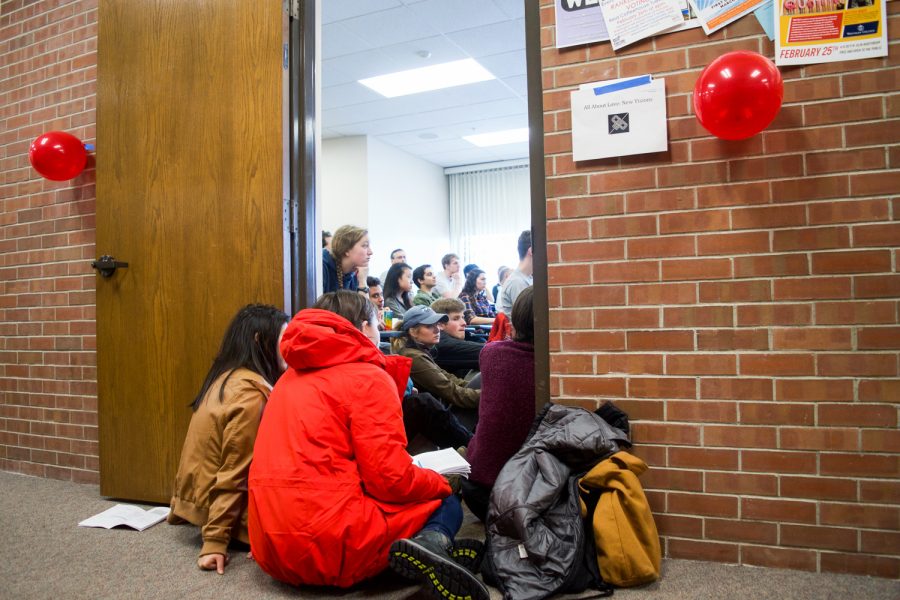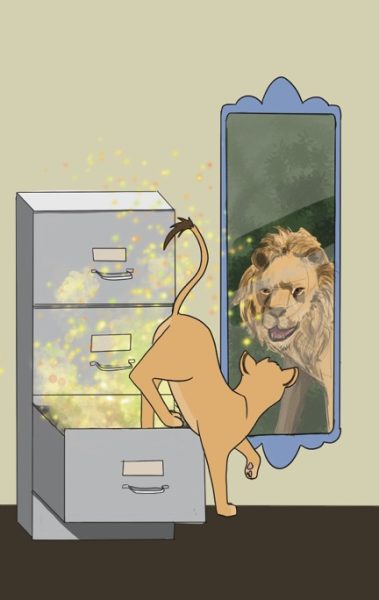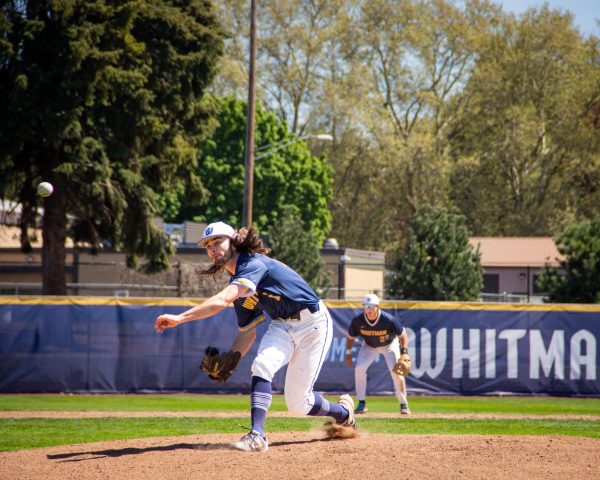Professors on Power and Privilege: Looking Back, Moving Forward
March 7, 2019
On Feb. 21, 2019, Whitman College was host to the annual Power & Privilege Symposium which is directed and led largely by students. While classes are cancelled, students are expected to engage with the complex, and often emotional, discourse created by the symposium.
In “Preparing for Power & Privilege Symposium 2019” and “Recent Resignations Raise Questions About Institutionalized Oppression,” the Wire news staff investigated the recent resignation of several students closely associated with the planning and execution of the symposium, and the 2019 theme of Attacking Apathy.
Sessions included a diverse range of topics for students to learn from and grapple with, including: “Reexamining the Racist Rom Com at Whitman,” “No Attraction? No Problem!: The Aro/Ace Experience,” “Apathy: Strategic Indifference and/or White Privilege,” “They Want Our Rhythm, But Not Our Blues” and “Who the Fuck am I?” In total, there were 27 sessions of which students could attend four of their choosing.
Volunteers were asked to count how many people attended each session — they have made this information available to the Wire. The most to attend any single block — a block being made up of seven separate sessions — was 766 students, professors, staff and community members. The rest of the blocks were well-attended, all numbering over 600 attendees.
In 2018, the symposium suffered from a lack of attendees, most blocks bringing in less than 600, not even half of the student body. While 2019 was a better year for Symposium turnout, it is still under attended when compared to the size of the Whitman community.
Ben Murphy, Archivist and Head of Digital Services at Whitman College and Northwest Archives in Penrose Library, sees the symposium as being beneficial to campus, but is unsure about the merits of mandatory Symposium attendance (as has been discussed in the past to ensure higher turnout).
“I personally think the symposium is a good thing to have on campus,” Murphy said. “I worry, I think as many others do, about [which] students are bearing the main burden of planning and executing the Symposium… Logistically I don’t know how you’d… enforce that [mandatory attendance]; I think it’s good to have classes cancelled and encourage folks to attend, but I’m not sure how you could… require students to do it.”
Similarly complex are the discussions around professor and staff involvement in Symposium sessions. Murphy himself was a panelist for “Repping the Whitmans in the 21st Century,” organized and executed by staff and faculty.
“My understanding of previous years … [is] that students very much wanted it to be a student organized and planned event … I don’t know if that feeling has shifted now and students do want more administrative or faculty support,” Murphy said. “I feel like faculty should be allowed to but not necessarily required to participate.”
While Murphy is an adjunct professor in addition to his staff position, most of his work falls within the parameters of staff member. He therefore has a unique perspective on the role of staff in the symposium, which, according to him, is limited.
“While staff are invited to participate… [they] probably don’t feel as welcome in some of those spaces as faculty members do,” Murphy said. “I wonder if there might be some capacity for staff members assisting with the planning of it, again if that’s what students are looking for, but [that] would require a little bit more intentional communication between students and staff.”
Given the themes and intentions of the symposium, Murphy sees this as a good opportunity to provide a space for staff to get involved.
“I’ve heard other folks on campus say that the Power and Privilege Symposium should be a place to address other kinds of power dynamics on campus,” Murphy said. “Like fairness of wages for what we pay our staff, thinking about the entire hierarchy of staff, from custodians up to the administration. There’s always… power and privilege issues associated with the staff.”
Audience feedback during Murphy’s session opened his eyes (and everyone else’s) to the lack of involvement with groups closely linked with Whitman College but seldom recognized as being such.
“I think we got several good pieces of feedback… talking about the Walla Walla community and how we are engaging with that community to understand the Whitmans and how they’re represented, because folks in the Walla Walla community might be more… reluctant to sort of challenge the traditional history of the Whitmans,” Murphy said. “We heard a good piece of feedback from [a student] who pointed out that… the communities that are potentially most impacted by the legacy of the Whitmans and settler colonialism of indigenous communities, and [that] those voices weren’t represented on the panel we had.”
Murphy’s take-away from his experience in and with the symposium is that we need to better incorporate these discussions about representation into everyday life on campus.
“How could we… make these kinds of conversations around this history part of something that happens all the time, not just when something controversial comes up or when there’s some notable anniversary,” Murphy said. “I wonder how we can… consider both of [these] things, like how do these big public facing [monuments] affect students and other people in our community, and how can we more fully explore the history of these representations and how they have changed and evolved over time?”
M Acuff, Associate Professor of Art and co-panelist with Murphy in “Repping the Whitmans,” thinks the symposium should be directly involved with Whitman coursework.
“I think this type of event needs to happen regularly, ad infinitum,” Acuff said in an email to the Wire. “I’d like to see it become a permanent part of the academic calendar. I’d also like to see more involvement generally and find ways to hitch it to curricula, with the hope that more connectivity will strengthen its effectiveness.”







